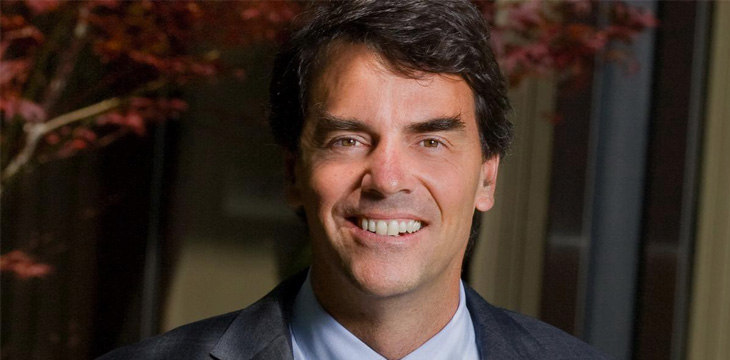
Tim Draper, the venture capitalist who regularly makes outlandish predictions regarding BTC price’s recovery to the $20,000 levels (they are almost always spectacularly off the mark), has been let off the hook with regards to a class action suit brought by investors of the ill-fated Tezos digital coin.
On Tuesday, U.S. District Judge Richard Seeborg of the Northern District of California upheld the motions filed by Draper and Swiss-based cryptocurrency financial services company Bitcoin Suisse to dismiss them as defendants in the Tezos securities litigation case. Bitcoin Suisse’s motion was wholly dismissed since it does “not appear to be a key player,” but in Draper’s case, the dismissal can still be amended.
https://twitter.com/stephendpalley/status/1026971272637571072
In his ruling, Seeborg said Arman Anvari, the lead plaintiff in the Tezos class action lawsuit, failed to argue the “statutory seller” claim against the two defendants. Seeborg also ruled that Draper had no direct control over Tezos, which means he could not be held individually responsible as a “control person.”
“Absent further averments regarding Draper’s ‘power to direct or cause the direction of Tezos’ management and policies,’ as evidenced by his routine interactions with either DLS or the Foundation, Anvari cannot plausibly allege that Draper is liable as a control person,” Seeborg wrote in his ruling on the case.
The husband and wife team of Arthur and Kathleen Breitman, however, weren’t so lucky.
In their motions for dismissal, the Breitmans, along with their firm Dynamic Ledger Solutions (DLS) and Swiss-based Tezos Foundation, they argued that the initial coin offering (ICO) conducted in 2017, raising $232 million in the process, was a fundraiser. The Breitmans also claimed that the ICO did not fall under the U.S. Securities and Exchange Commission’s purview since it was administered by the Swiss-based Tezos Foundation.
Seeborg, however, noted that DLS’s involvement “in establishing and aiding the Tezos Foundation rendered the two entities deeply intertwined, if not functionally interchangeable, throughout the ICO process.”
Seeborg also ruled that the defendants had passed the “personal jurisdiction” test because their English-language Tezos.com website was hosted on a server located in Arizona. The ICO was also structured to accommodate U.S.-based participation.
“While the Breitmans and DLS are free to renew their arguments regarding the detached operation and structure of the Foundation at later stages in this litigation, at this point, Anvari’s allegations are sufficient to enable his Section 15 ‘control person’ claim against them to survive dismissal,” according to the U.S. judge.
Anvari’s lawsuit against Breitmans, DLS and the Tezos Foundation was a consolidation of all prior class action suits filed by other Tezos investors. The defendants were accused of violating the SEC regulations when they sold unregistered securities in the United States.

 09-21-2024
09-21-2024


